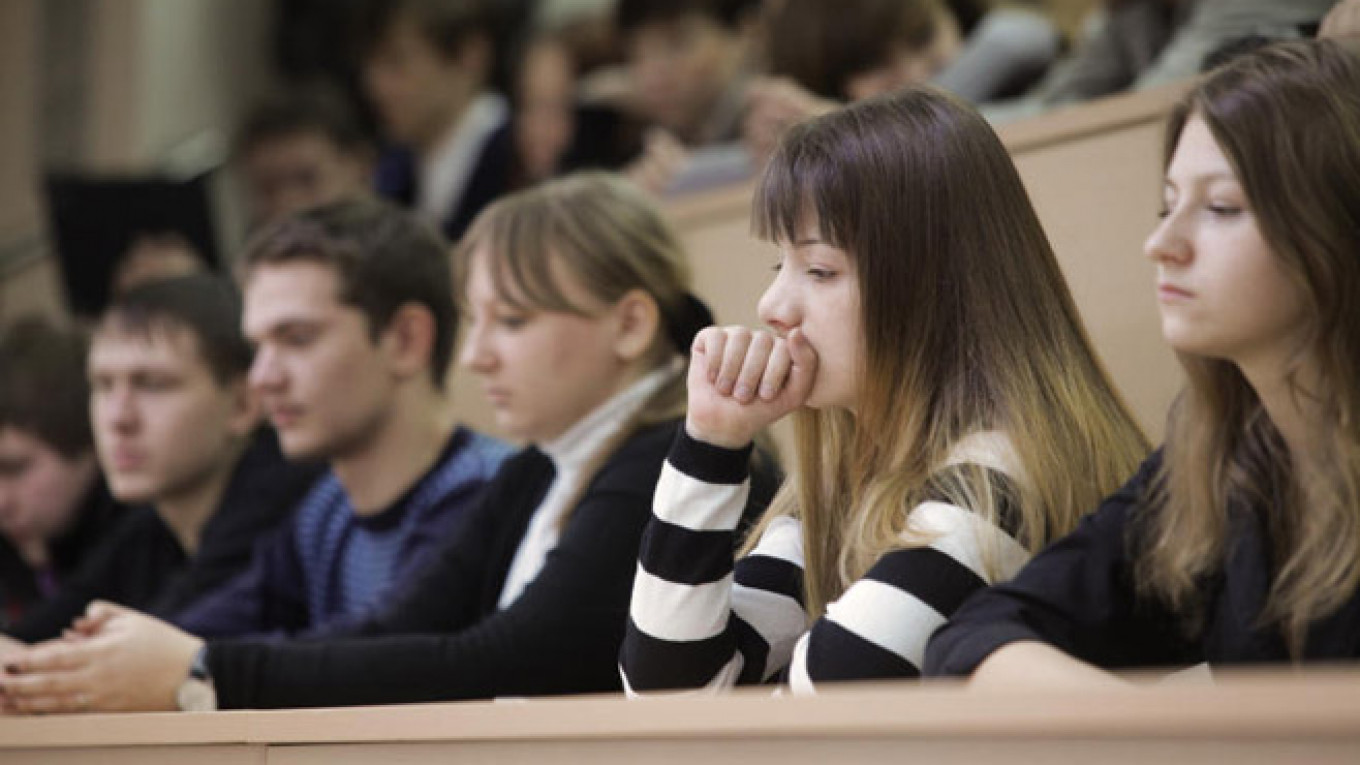Since January, 77 universities have become casualties to ramped-up scrutiny of Russia's higher-education sector, according to the Federal Inspection Service for Education and Science.
Fortunately for students, those attending schools that have lost their licenses will be offered the opportunity to continue their studies at different institutions, the education inspection service told The Moscow Times by telephone Tuesday.
"No one is throwing them out into the street," a spokeswoman said, adding that decisions about where to move the students would be made by each region's council of rectors.
Newly heightened attention to the education sector has emerged from a law that entered into force in September. Aiming to set standards at all levels of the education system, the law called for both planned and random audits of the "effectiveness" of various institutions. The law was approved by President Vladimir Putin in December 2012.
Immediately after reclaiming the presidency in May 2012, Putin signed a decree envisioning Russia's meteoric rise within the realm of higher education. The decree specifically stipulated that by 2020, at least five Russian universities should be among the world's top 100.
By way of comparison, Moscow State University was the only Russian institution to feature among the 2013-2014 Times World University Rankings of the top 400 schools on the planet. MGU's rank fell somewhere between 226 and 250.
A variety of circumstances have led to the loss of university licenses since the start of 2014. According to the education inspection service's website, of the 77 licenses stripped, three revocations were court-ordered, 15 were voluntarily relinquished by universities that could not meet requirements, 13 institutions lost their licenses amid reorganization efforts and 36 institutions were shut down voluntarily.
While the new standardization law has seen an explosion in license revocations, renewed efforts to improve higher education have been underway since 2012.
That year, an initiative was launched to audit government-founded schools. As a result of that initiative, 30 institutions were declared "ineffective" in 2012, according to an Itar-Tass report. The findings emerged from the audits of 541 institutions
The following year, audits spread to the private sphere as well. In 2013, seven governmental institutions and 125 institutions without government affiliations were determined to have been ineffective, Itar-Tass reported. These results came from the inspections of 934 institutions audited.
In 2013, Prime Minister Dmitry Medvedev vested the education inspection service with the authority to terminate educational licenses with the support of a court order pending the failure of a given institution to correct its violations.
Contact the author at c.brennan@imedia.ru
A Message from The Moscow Times:
Dear readers,
We are facing unprecedented challenges. Russia's Prosecutor General's Office has designated The Moscow Times as an "undesirable" organization, criminalizing our work and putting our staff at risk of prosecution. This follows our earlier unjust labeling as a "foreign agent."
These actions are direct attempts to silence independent journalism in Russia. The authorities claim our work "discredits the decisions of the Russian leadership." We see things differently: we strive to provide accurate, unbiased reporting on Russia.
We, the journalists of The Moscow Times, refuse to be silenced. But to continue our work, we need your help.
Your support, no matter how small, makes a world of difference. If you can, please support us monthly starting from just $2. It's quick to set up, and every contribution makes a significant impact.
By supporting The Moscow Times, you're defending open, independent journalism in the face of repression. Thank you for standing with us.
Remind me later.






